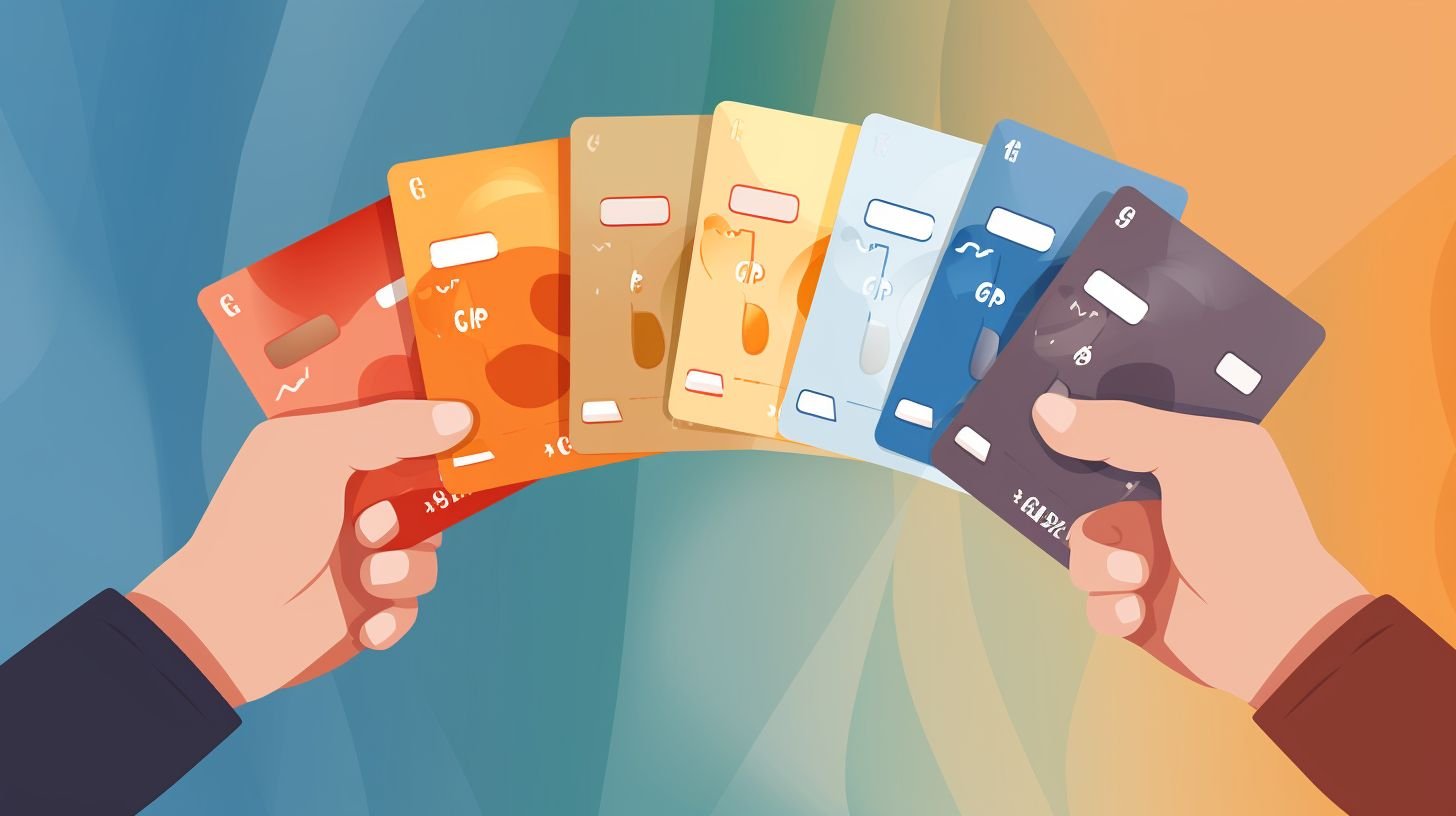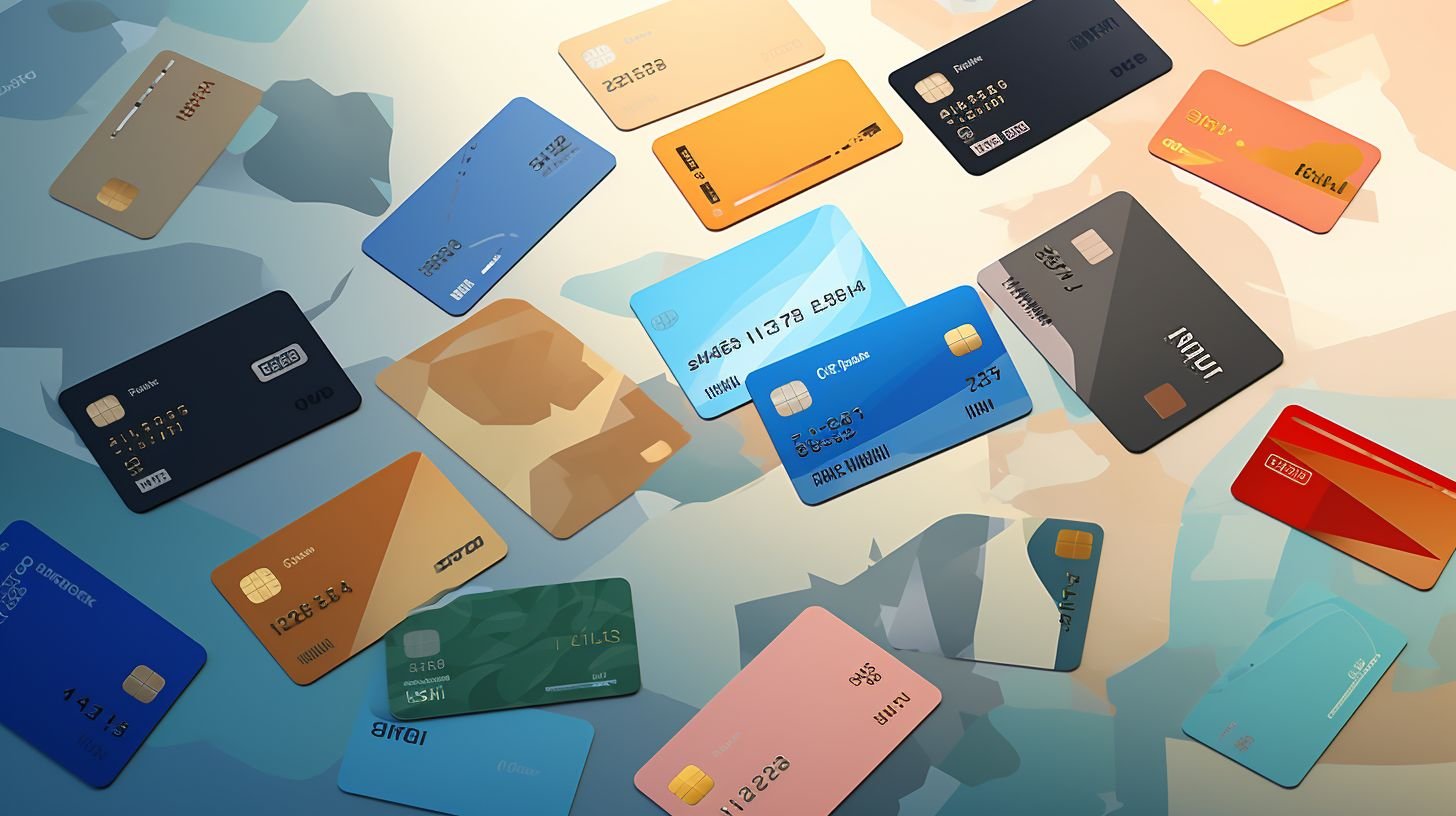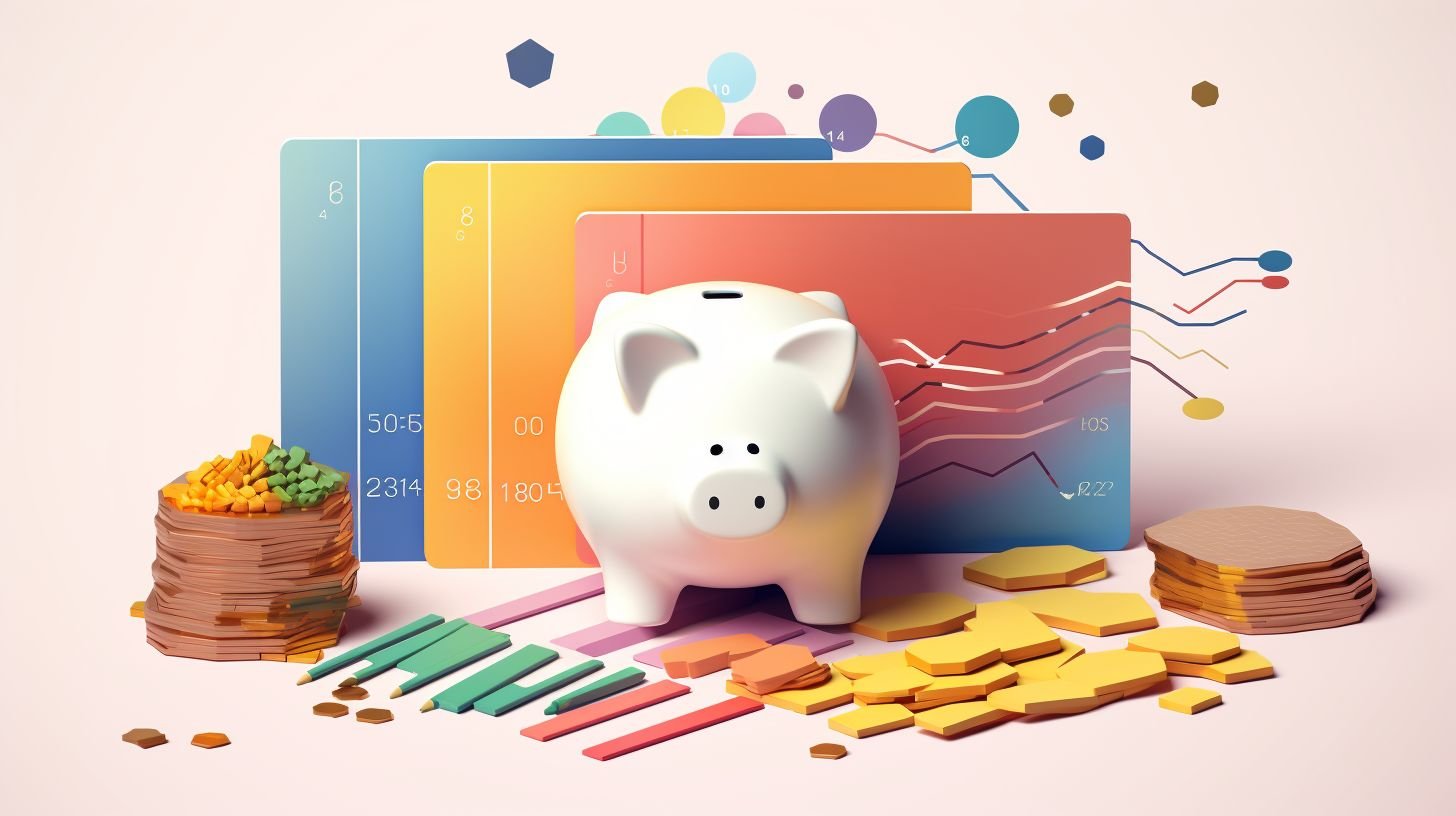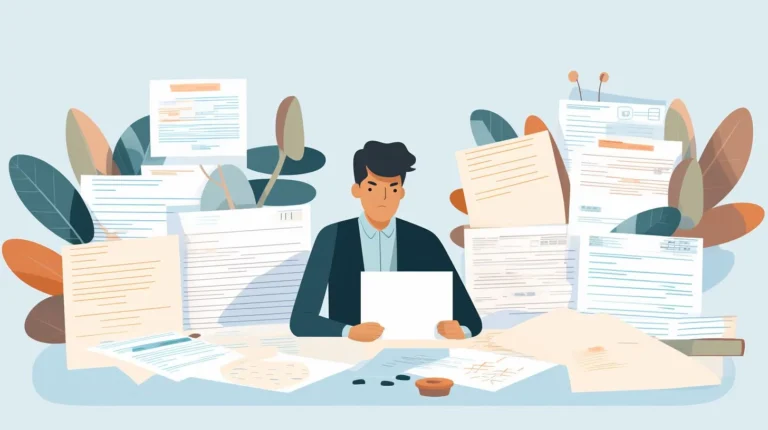How Many Credit Cards Should You Have?

Key Takeaways
- The number of credit cards you should have depends on your financial goals and ability to manage multiple accounts responsibly.
- The Minimalist Approach suggests having 1 or 2 credit cards for simplicity and easy management.
- The Intermediate Approach recommends maintaining 3 to 5 credit cards for a balance between convenience and financial responsibility.
- Becoming a Rewards Aficionado with 6 or more credit cards may appeal to those who want to maximize rewards and benefits, but it requires diligent management.
Understanding Credit Cards
 Credit cards are like handy tools for buying items. You can buy things now and pay later. It’s a kind of loan from the bank. But remember, you need to pay back this loan! If you don’t, the bank may ask you to pay more money (interest charges). Plus, it might hurt your credit score. People get credit cards for many reasons. Some want to build their credit scores. Others love earning rewards or cash back. Having a good credit score is vital for big buys like cars or homes. Also, keeping an eye on your spending helps avoid unwanted debt.
Credit cards are like handy tools for buying items. You can buy things now and pay later. It’s a kind of loan from the bank. But remember, you need to pay back this loan! If you don’t, the bank may ask you to pay more money (interest charges). Plus, it might hurt your credit score. People get credit cards for many reasons. Some want to build their credit scores. Others love earning rewards or cash back. Having a good credit score is vital for big buys like cars or homes. Also, keeping an eye on your spending helps avoid unwanted debt.The Pros and Cons of Having Multiple Credit Cards
 Having multiple credit cards can offer various advantages, such as reward opportunities and the ability to build credit. However, it also comes with potential downsides, including the risk of accumulating debt and a negative impact on your credit score.
Having multiple credit cards can offer various advantages, such as reward opportunities and the ability to build credit. However, it also comes with potential downsides, including the risk of accumulating debt and a negative impact on your credit score.Pros: Reward Opportunities and Building Credit
Having more than one credit card brings big wins. One of these is reward opportunities. Many cards give back cash, points, or airline miles when you use them. If you’re clever, you can save money by using the right card for each buy. Also, having multiple credit cards helps build your credit faster. Each time you pay a bill on time, it boosts your credit score. The better your score, the easier it is to buy a house or borrow money in the future. It’s smart to keep at least two accounts open so this happens quicker and lowers your overall credit use.Cons: Potential for Debt and Negative Impact on Credit Score
Having many credit cards can bring trouble. It’s easy to fall into debt if you aren’t careful. Each card comes with a limit, and if you spend too much, it adds up fast. This is called overspending. Overspending can hurt your credit score badly. Hitting the limit on one or more cards is not good at all! Applying for new cards to carry more debt will make things worse. It’s better to avoid this and use your credit wisely. If you need to close an account, think again before shutting down the oldest one – that could lower your score as well! Also, try not to apply for new ones when planning a big loan soon; it helps keep your score high.How Many Credit Cards Should One Have?
 When it comes to the number of credit cards you should have, there are several approaches to consider. The minimalist approach suggests having only 1 or 2 credit cards, while the intermediate approach recommends maintaining 3 to 5 cards. For those who want to maximize rewards and benefits, becoming a rewards aficionado with 6 or more credit cards may be appealing. Ultimately, the decision depends on your financial goals and ability to manage multiple accounts responsibly.
When it comes to the number of credit cards you should have, there are several approaches to consider. The minimalist approach suggests having only 1 or 2 credit cards, while the intermediate approach recommends maintaining 3 to 5 cards. For those who want to maximize rewards and benefits, becoming a rewards aficionado with 6 or more credit cards may be appealing. Ultimately, the decision depends on your financial goals and ability to manage multiple accounts responsibly.The Minimalist Approach: 1-2 credit cards
Having only one or two credit cards can be a good choice. This is called the Minimalist Approach. It is simple and easy to manage. You do not face high risk of debt with this plan. Also, it helps in keeping your finances neat and tidy. Just make sure you pay off all money on time every month. Even people who prefer no credit card, often use at least one for better purchase protection. Plus, it makes online shopping easier than cash or debit card!The Intermediate Approach: 3-5 credit cards
As part of the intermediate approach, having 3-5 credit cards can provide a balance between convenience and financial responsibility. With this number of cards, you have more options for managing your expenses while still keeping track of them effectively. However, it’s important to remember that maintaining multiple credit cards also comes with responsibilities. You need to make sure you can pay off the full balance on each card every month to avoid accumulating debt and paying high interest charges. By carefully selecting your credit cards based on your needs and spending habits, you can take advantage of benefits like rewards or cash back while staying in control of your finances.The Rewards Aficionado: 6+ credit cards
As a Rewards Aficionado, you are someone who loves maximizing travel rewards and knows how to manage multiple credit cards effectively. With 6 or more credit cards, you can take advantage of different reward programs and earn points, cash back, or airline miles on your purchases. However, it’s important to keep in mind that having more cards also means more responsibility and organization in managing them. You need to be diligent in tracking spending, paying bills on time, and avoiding debt. But if you’re dedicated to maximizing rewards and can handle the extra effort, having 6+ credit cards may be worth it for you.Impact of the Number of Credit Cards on Your Credit Score
 Having multiple credit cards can have both positive and negative impacts on your credit score. Find out how it can affect you and why it’s important to manage them properly in order to maintain a healthy credit profile.
Having multiple credit cards can have both positive and negative impacts on your credit score. Find out how it can affect you and why it’s important to manage them properly in order to maintain a healthy credit profile.How it can hurt
Having too many credit cards can actually hurt your financial situation in a few different ways. First, opening unnecessary accounts just to increase your available credit can actually lower your credit score. This is because it increases the overall amount of debt you potentially have access to, which makes lenders view you as more of a risk. Second, having multiple credit cards means you could be paying various fees and interest charges that can quickly add up and become difficult to keep track of. Finally, having numerous cards may make you appear risky to lenders, which could result in higher interest rates or even the denial of loan applications. It’s important to carefully consider how many credit cards you truly need and ensure that they are managed responsibly to avoid these potential negative impacts on your financial well-being.How it can help
Having multiple credit cards can help in several ways. First, it provides more spending power and flexibility when making purchases. With different cards, you can take advantage of various rewards programs and earn cash back, points, or airline miles on your spending. This means you can save money or enjoy benefits like discounted travel or merchandise. Secondly, having multiple credit cards can also help improve your credit score if managed properly. By using different cards responsibly and keeping balances low, you demonstrate to lenders that you can handle credit responsibly. This positive payment history and low credit utilization ratio can boost your creditworthiness over time. Additionally, using multiple cards allows you to optimize your financial situation for different transactions. Some cards might offer better terms for balance transfers or have lower interest rates for specific purchases.When Multiple Credit Cards Make Sense
 Having multiple credit cards can make sense in certain situations. For example, if you are someone who loves to travel and wants to maximize rewards, having multiple credit cards can help you earn different types of rewards and access sign-up bonuses. Additionally, if you have a good handle on your finances and can pay off the full balance on every card every month, then acquiring multiple cards may be beneficial for diversifying perks and taking advantage of special offers. However, it’s important to carefully consider your financial situation before deciding to have multiple credit cards.
Having multiple credit cards can make sense in certain situations. For example, if you are someone who loves to travel and wants to maximize rewards, having multiple credit cards can help you earn different types of rewards and access sign-up bonuses. Additionally, if you have a good handle on your finances and can pay off the full balance on every card every month, then acquiring multiple cards may be beneficial for diversifying perks and taking advantage of special offers. However, it’s important to carefully consider your financial situation before deciding to have multiple credit cards.When Having One Credit Card Makes Sense
 Having just one credit card can be a smart choice for some people. It offers simplicity and makes it easier to manage your finances. If you prefer to keep things simple, having one credit card can help you stay on top of your payments and avoid any potential confusion that may come with multiple cards. Another reason why having only one credit card might make sense is if you’re looking to take advantage of a 0 percent APR offer. These types of offers can provide an interest-free period, allowing you to pay off your balance without accruing any additional charges. By focusing on just one credit card with this type of offer, you can maximize the benefits and potentially save money in interest charges. Additionally, if annual fees are a concern for you, having just one credit card means that you only have to worry about paying for one annual fee instead of multiple fees associated with multiple cards. This can help save money in the long run and simplify your financial obligations. It’s important to note that while having only one credit card has its benefits, it’s crucial to ensure that you use it responsibly by making payments on time and keeping your balances low. Building a positive payment history and maintaining a good credit score are essential factors in achieving financial stability. In conclusion, if simplicity, taking advantage of specific offers or promotions like 0 percent APR offers or avoiding annual fees are important to you, then having just one credit card might be the right choice for your financial situation.
Having just one credit card can be a smart choice for some people. It offers simplicity and makes it easier to manage your finances. If you prefer to keep things simple, having one credit card can help you stay on top of your payments and avoid any potential confusion that may come with multiple cards. Another reason why having only one credit card might make sense is if you’re looking to take advantage of a 0 percent APR offer. These types of offers can provide an interest-free period, allowing you to pay off your balance without accruing any additional charges. By focusing on just one credit card with this type of offer, you can maximize the benefits and potentially save money in interest charges. Additionally, if annual fees are a concern for you, having just one credit card means that you only have to worry about paying for one annual fee instead of multiple fees associated with multiple cards. This can help save money in the long run and simplify your financial obligations. It’s important to note that while having only one credit card has its benefits, it’s crucial to ensure that you use it responsibly by making payments on time and keeping your balances low. Building a positive payment history and maintaining a good credit score are essential factors in achieving financial stability. In conclusion, if simplicity, taking advantage of specific offers or promotions like 0 percent APR offers or avoiding annual fees are important to you, then having just one credit card might be the right choice for your financial situation.The Potential Issues with Having a Lot of Credit Cards
Having a lot of credit cards can come with potential issues. One issue is that it can be challenging to keep track of all the different benefits, fees, and payment due dates for each card. This could lead to missed payments and late fees, which can negatively impact your credit score. Another potential problem is that having too many credit cards can make it easier to reach your overall credit limit. If you consistently use a large portion of your available credit, it can also hurt your credit score. It’s important to remember that each credit card application results in a hard inquiry on your credit report, which can temporarily lower your score. Additionally, some people may find it difficult to manage their finances when they have multiple lines of revolving credit available to them. It’s crucial to stay organized and use caution when considering how many cards are right for you.Tips on Managing Multiple Cards
Managing multiple credit cards can be overwhelming, but with some careful planning and organization, you can handle them effectively. Here are some tips to help you manage your multiple credit cards:- Create a budget: Start by tracking your expenses and creating a monthly budget. This will help you keep track of your spending and ensure that you can pay off your credit card balances each month.
- Set up automatic payments: To avoid late fees and missed payments, set up automatic payments for each of your credit cards. This way, you’ll never have to worry about forgetting to make a payment.
- Prioritize high-interest debt: If you have multiple credit cards with different interest rates, focus on paying off the card with the highest interest rate first. This will save you money in the long run.
- Monitor your credit utilization: Keep an eye on how much of your available credit you’re using. Aim to keep your credit utilization ratio below 30% to maintain a healthy credit score.
- Use different cards for different purposes: Consider using one card for everyday expenses, another for travel rewards, and another for balance transfers or emergencies. This way, you can maximize the benefits of each card.
- Review your statements regularly: Take the time to review each statement to ensure that there are no unauthorized charges or errors. Report any discrepancies immediately.
- Avoid unnecessary fees: Be mindful of annual fees, late payment fees, and other charges associated with your credit cards. Make sure that the benefits outweigh these costs.
- Limit new applications: While it’s tempting to apply for every attractive credit card offer that comes along, be cautious about opening too many new accounts at once. Each application results in a hard inquiry on your credit report, which may temporarily lower your score.
- Stay organized: Keep track of all your credit cards and their terms in one place. You can use a spreadsheet or a mobile app to stay organized.
Is it Bad to Apply for Multiple Credit Cards?
Applying for multiple credit cards is not necessarily bad, but it can have some drawbacks. It’s important to consider your financial situation and spending habits before applying for more cards. Having too many credit cards can make it harder to keep track of payments and manage your debts. Additionally, each time you apply for a new card, it can result in a hard inquiry on your credit report, which may temporarily lower your credit score. However, if you are responsible with managing multiple cards and pay off your balances in full every month, it can help build your credit faster and increase your overall credit limit. Ultimately, the decision to apply for multiple credit cards should be based on what makes sense for your individual financial goals and circumstances.Should You Carry a Credit Card for Emergencies?
Having a credit card for emergencies is definitely a good idea. It can provide you with a safety net in unexpected situations. Unlike cash or debit cards, carrying a credit card offers purchase and fraud protection. This means that if your card is lost or stolen, you won’t be held responsible for any unauthorized charges. Additionally, credit cards often come with benefits like extended warranties on purchases and travel insurance coverage. Not having a credit card can make it more difficult to build a credit score, which is necessary for larger financial commitments like getting a mortgage or financing a car. By using your credit card responsibly and making timely payments, you can establish positive credit history and demonstrate responsible financial behavior. In conclusion, carrying a credit card for emergencies provides you with added security and flexibility when unexpected expenses arise. It also helps build your credit history over time. Just remember to use it wisely and pay off the balance in full each month to avoid accumulating debt.How Often Should You Apply for a Credit Card?
There is no specific guideline on how often you should apply for a credit card. The frequency of applying for a new credit card depends on your individual financial situation and spending habits. It’s important to consider whether you can pay off the full balance on every card every month before acquiring multiple cards. Applying for credit cards too often could potentially lead to debt if you’re not able to manage the payments effectively. So, it’s crucial to assess your financial capability and determine if adding another credit card aligns with your goals and needs.Can You Have Two of the Same Credit Card?
Yes, it is possible to have two of the same credit card. Some people might choose to have multiple cards from the same issuer because they like the benefits or rewards offered by that particular card. However, before getting another card, it’s important to consider whether you can manage the additional credit responsibly and be able to pay off both balances on time. It’s also worth noting that some credit card issuers may have restrictions on how many of their cards you can have at once. So if you’re interested in having two of the same credit card, make sure to check with the issuer first.Frequently Asked Questions
– How many credit cards should I have for good credit? – Is it bad to have a lot of credit cards? – How many credit cards should a college student have?How many credit cards should I have for good credit?
The number of credit cards you should have for good credit depends on your personal financial situation and spending habits. It’s important to consider whether you can pay off the full balance on every card every month before getting multiple cards. If you’re a first-time credit card user, starting with one cash-back card with no annual fee might be a good idea. However, responsible use of multiple credit cards can help build your credit faster and increase your credit limits. Just make sure to manage them carefully and avoid accumulating debt.Is it bad to have a lot of credit cards?
Having a lot of credit cards can have both positive and negative effects on your financial situation. On the one hand, having multiple cards allows for more reward opportunities and can help build your credit history. However, it’s important to consider whether you can manage all those cards responsibly and pay off the balances on time. If you struggle with overspending or paying bills on time, having too many credit cards could lead to debt and damage your credit score. Ultimately, the number of credit cards you should have depends on your individual circumstances and ability to handle them responsibly.How many credit cards should a college student have?
The number of credit cards a college student should have depends on their financial situation and spending habits. Some students may choose not to have any credit cards to avoid the temptation of overspending. However, having at least two open credit card accounts is recommended for college students. This can help them establish a credit history and improve their credit score over time. It’s important for students to carefully consider their ability to pay off the full balance on each card every month before acquiring multiple cards.What Are the Pros and Cons of Having Multiple Balance Transfer Credit Cards?
Multiple balance transfer credit cards can offer advantages, such as greater flexibility in managing debt and potentially higher credit limits. On the other hand, it can be challenging to keep track of multiple cards and their respective terms and fees. Understanding the pros and cons of balance transfer credit cards can help individuals make informed decisions about their financial situation.






